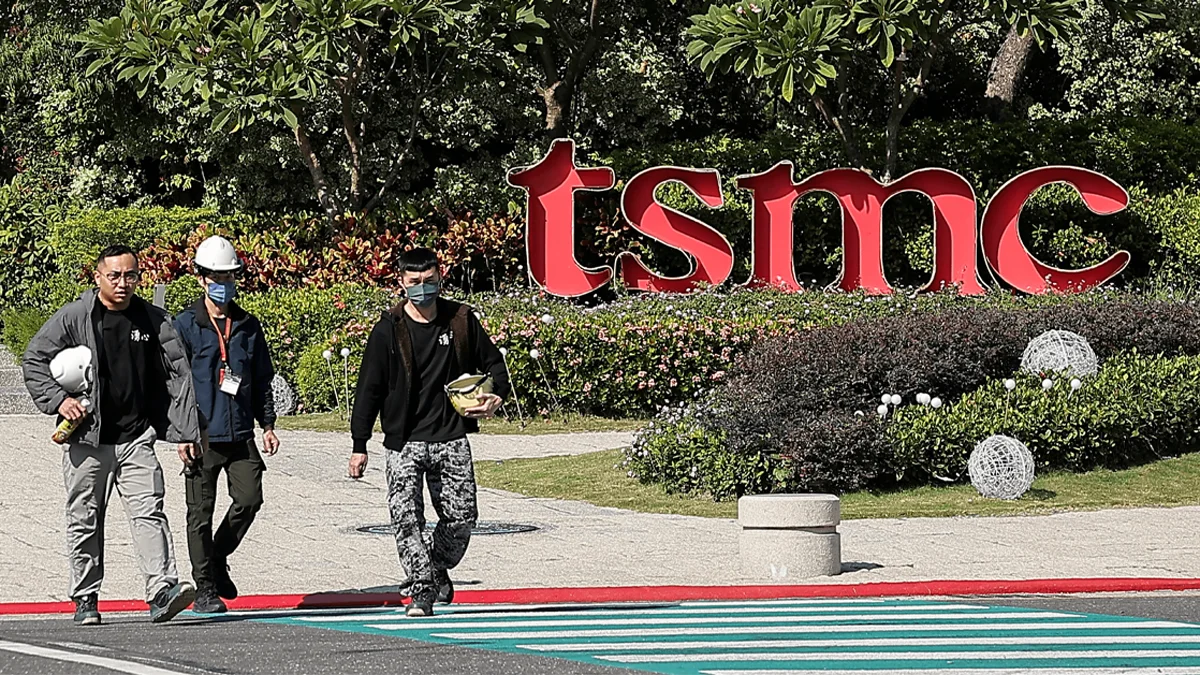
Trump Threatens Chip Import Tariffs as Taiwan Terms Business with US a Win-Win
The Taiwanese government has termed the semiconductor business between the Asian island and the US a ‘win-win’ model resulting from high complementarity. The government of Taiwan made these remarks after US President Donald Trump mulled chip import tariffs as high as 100%, Reuters reported.
Shifting Chip Production
Trump’s tariff threats are aimed at shifting chip production from Asia to the US. To achieve this, the US president is getting ready to extend high tariffs beyond electronics assembled in China to semiconductor chips produced in Taiwan.
“In the very near future, we’re going to be placing tariffs on foreign production of computer chips, semiconductors and pharmaceuticals to return production of these essential goods to the United States,” the President said.
He argued that top US big techs have been importing processors from Taiwan and he wants that production back to the US without having to spend billions of dollars.
“And we don’t want to give them billions of dollars like this ridiculous program that Biden has given everybody billions of dollars. They already have billions of dollars. They’ve got nothing but money Joe. They didn’t need money. They needed an incentive. And the incentive is gonna be they’re not gonna wanna pay a 25, 50 or even a 100 % tax,” Trump said.
“They’re gonna build their factory with their own money. We don’t have to give them money,” he added.
The President slammed the Chips and Science instituted by the Biden administration to invest more than $52 billion in domestic chip production. Trump is counting on high tariffs to push American big techs into shifting chip production to the US.
Taiwan’s Reaction
Responding to Trump’s tariff threats, the Taiwanese government highlighted its commitment to leverage its ties with the American government to address the issue in a way that benefits Taiwan’s chip business and the US.
“Taiwan and the U.S. semiconductor and other technology industries are highly complementary to each other, especially the U.S.-designed, Taiwan-foundry model, which creates a win-win business model for Taiwan and U.S. industries,” Taiwan’s Economy Ministry said in a statement.
The statement further stated that the ministry “will continue to pay attention to U.S. policy going forward, and there will be close contact and cooperation between the two sides to ensure that Taiwan’s and US’ industries and national interests can develop in a mutually beneficial way in the face of global challenges.”
Another statement from the presidential office of Taiwan stated that the US and the Island have a close relationship and enjoy mutual trust.
Taiwan-US Trade Ties
Taiwan is home to the world’s biggest contract chip manufacturer, Taiwan Semiconductor Manufacturing Company (TSMC). The Asian island serves as an important link in the global supply chain with tech companies like Nvidia and Apple relying on it to meet their semiconductor supply needs.
The company has set up a factory in Arizona from where it is servicing American companies like AMD, Qualcomm, Apple and Nvidia. However, most of its chip production functions are still in Taiwan. TSMC had committed to invest $12 billion in the US to construct the Arizona plant during Trump’s first term. The chip maker increased that amount during the Biden administration. Today, TSMC US investment stands at $65 billion.
Early this month, Taiwanes government said it expected Trump tariffs to have minimal impact on the Taiwan semiconductor industry due to its tech superiority. However, the Island country faces a new challenge after Trump directed US federal agencies to probe allegations of currency manipulation, unfair trade practices and trade deficits by other countries.
Last year, the trade surplus between Taiwan and the US rose by 83% as exports to the US hit a high of $111.4 billion. This growth was driven by high demand for tech products like chips.





